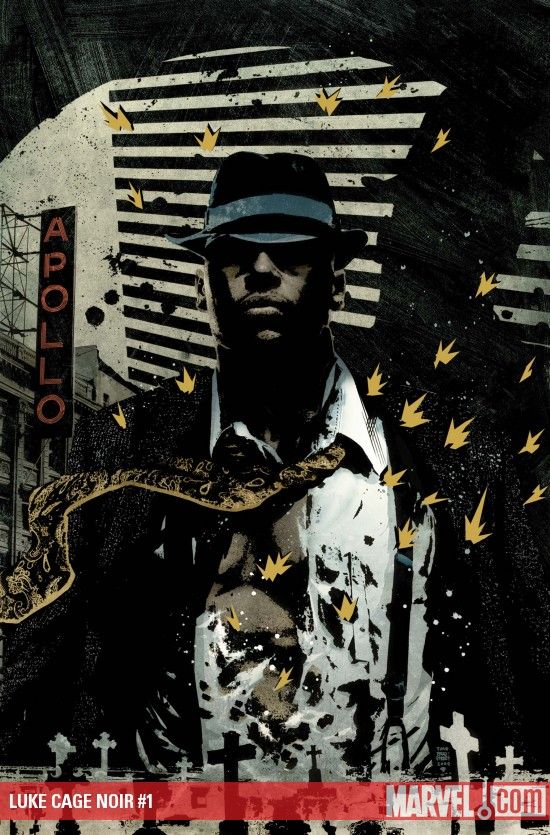I haven't read all the Marvel Noir comics, but I've read most of them, and what I've noticed is that they are a lot better than you might expect them to be. Taking these established superheroes and plopping them into an alternate Noirish reality allows for more playfulness from the writers, and the art has been, overall, a heck of a lot better than the average Marvel mainstream comic.
"Luke Cage Noir" #1 certainly falls in line with the rest. It's beautifully drawn by the underrated Shawn Martinbrough (who did some really nice work on Greg Rucka's "Detective Comics" run, but has been drawing some lower-profile work in recent years), and it seamlessly integrates Luke Cage into a story about mobsters and molls, death and betrayal. It's no surprise that Luke Cage would work in such a setting -- he's the most un-superhero-like of all the Noir line protagonists so far -- but Mike Benson and Adam Glass tell a jazzy story here, and their portrayal of Luke Cage is both more dignified and more badass than the guy wearing the t-shirt and longshoreman cap in "New Avengers."
This issue begins with Cage in prison, saying, via captions, "Everyone thinks they're born for greatness. But some people...some people are born just to die. What about me? What was I born for?" There's a calm to this Luke Cage, a confidence as he stalks through the back alleys and makes his presence known, but there's also an uncertainty deep inside him. What is all this about, he wonders, what is the real deal here? He knows that his old friends are lying to him now that he's out of jail, but he doesn't know what they're lying about or why. And he means to find out.
There's also the typical Luke Cage bits, like the reference to the steel skin and rumors of a strange prison experiment that earned him early release. But Benson and Glass don't show the experiment -- or give any credence to the rumors about it -- and we never see any superhuman powers from Cage. The iron skin is a metaphor here, perhaps. Or maybe it will become a literal part of the story, but that doesn't seem to be what "Luke Cage Noir" is about. It's not an early 20th century superhero saga with a bunch of guys in fedoras. No, it's a gangster story and a murder mystery. And Luke Cage has been hired to find out what happened to a white lady murdered in Harlem. It's noir.
I've liked a few of these Marvel Noir comics quite a bit -- "X-Men Noir" won my over by the end, and "Spider-Man Noir" was pulpy fun -- but "Luke Cage Noir" is my favorite so far. Before I read this issue I joked about the title of this series, saying "the existence of 'Luke Cage Noir' justifies the entire Noir line." No joke, though: this comic is a very good one.

